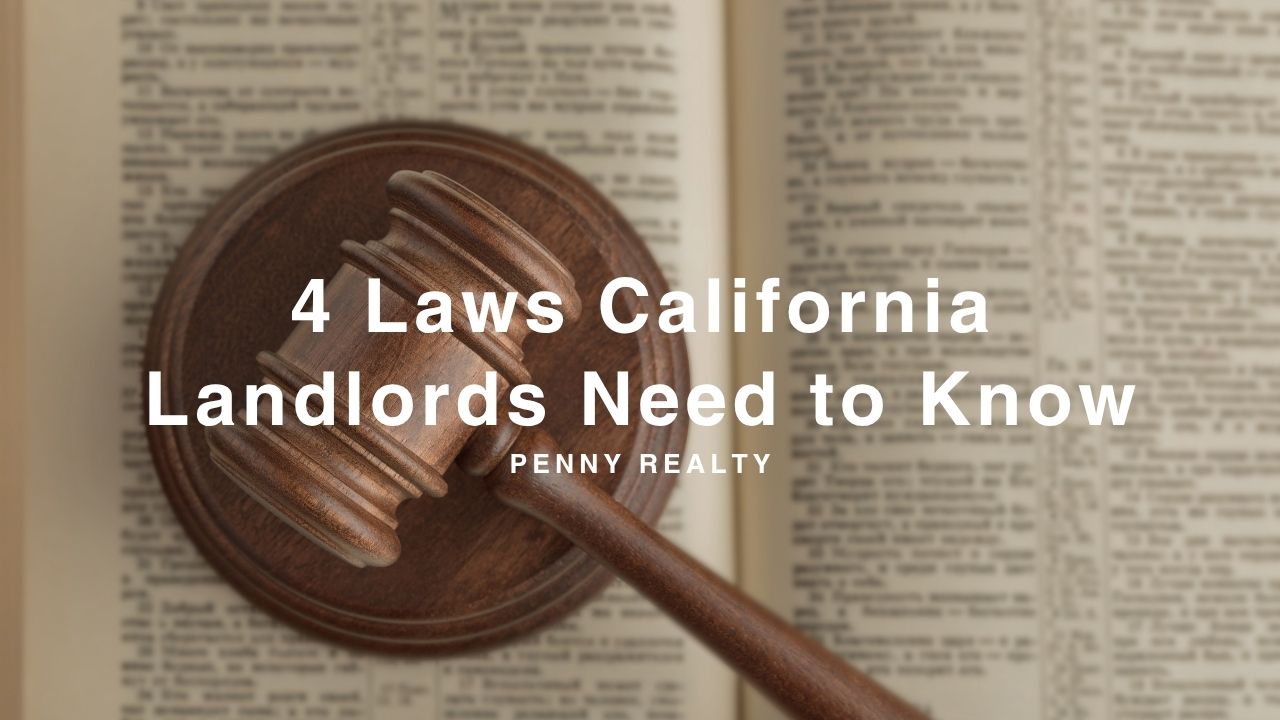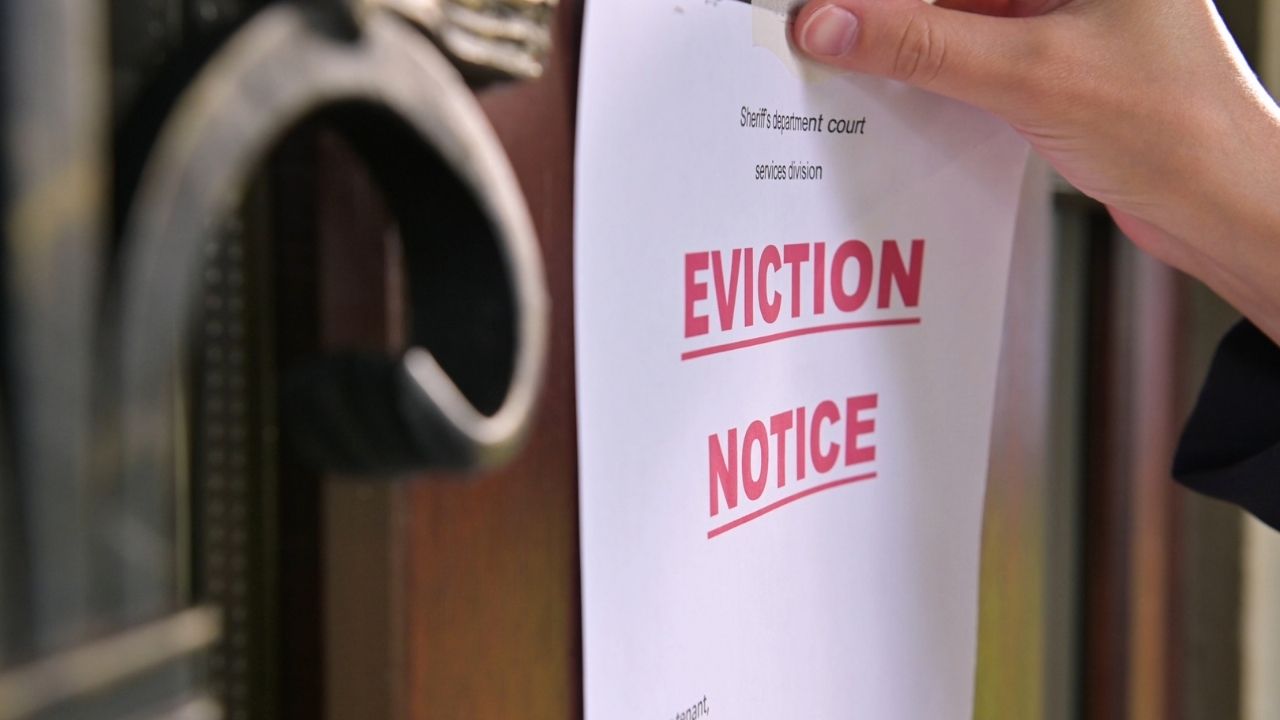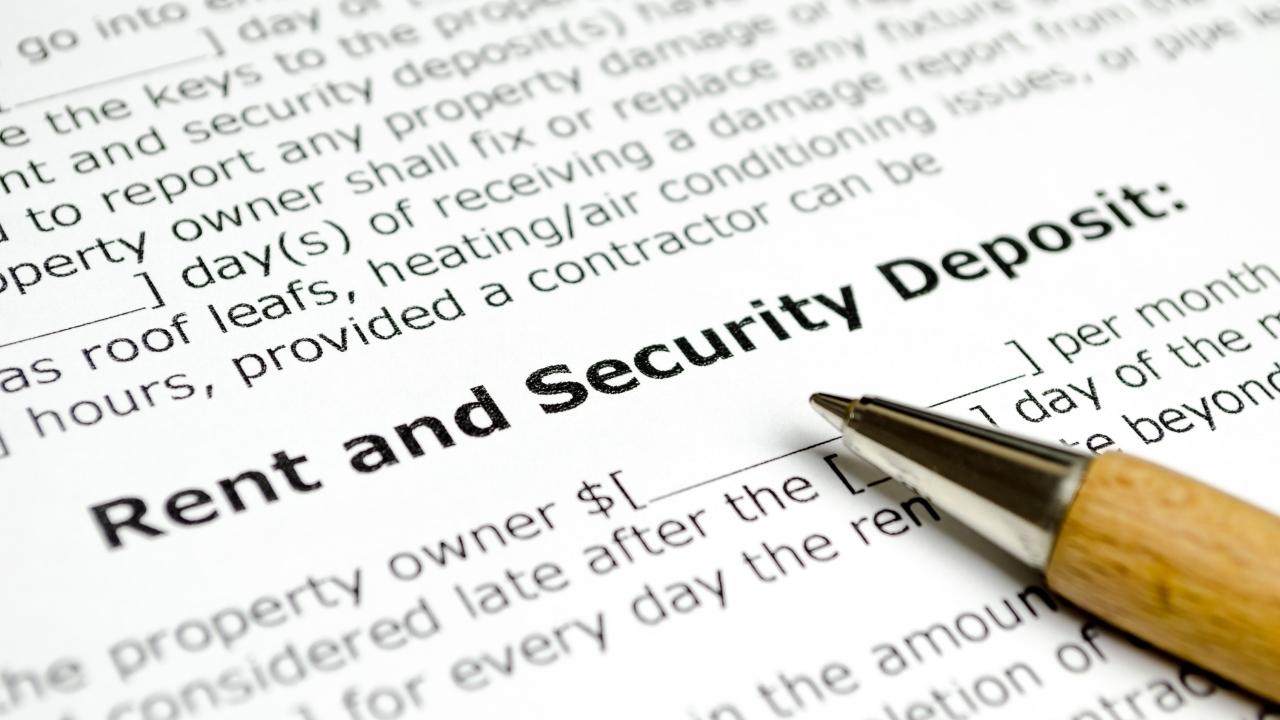Owning rental property in California can be rewarding, but it often feels like navigating a field of rules, deadlines, and legal traps. At Penny Realty, we help local owners stay compliant and confident, even when state and city regulations get complicated. Understanding a few essential laws can protect your property, your income, and your peace of mind.

Below is a clear breakdown of the four most important California rental laws every landlord should know.
Eviction Rules You Must Follow Step By Step
Evictions in California require precise compliance from the first notice to the final filing. A landlord must have legally recognized just cause before removing a tenant, and the timing of each notice must match state law exactly. Missteps can delay a case significantly, which aligns with trends reported through HousingWire.

Careful documentation and accurate timelines are essential to avoid setbacks during the process.
Security Deposit Laws With Strict Deadlines
Security deposits in California allow up to two months of rent for an unfurnished unit and three months for a furnished home. Once a tenant moves out, the deposit must be refunded or itemized within a firm 21-day deadline.

Penalties can reach double the deposit if the timeline is missed. Similar enforcement patterns appear in several state comparisons shared by Investopedia. Detailed inspections, clear receipts and organized tracking often make this part of the process much smoother.
Fair Housing Rules That Require Absolute Consistency
California’s fair housing protections cover race, religion, gender, disability, age, family status, sexual orientation and source of income. Even small wording choices in rental ads can take on unintended meaning. Consistent screening practices help avoid disputes that arise when applicants are treated differently.

The broader principles behind these protections align with the considerations outlined in how to balance fair housing laws. Conversations within landlord communities, including those seen throughout BiggerPockets, show how easily misunderstandings can occur when processes are not uniform.
Rent Control And Lease Rules Under AB 1482
The Tenant Protection Act limits annual rent increases to 5 percent plus inflation, capped at 10 percent. Even during high-inflation periods, the cap remains in place. Forbes has noted how these limits shape long-term financial planning for property owners across the state.

No-fault move-outs tied to owner occupancy or major renovations require relocation assistance equal to one month of rent. Cities such as San Diego and Los Angeles may apply additional local rules that build on top of state requirements. Lease communication can also be influenced by expectations connected to tenant privacy laws.
Additional Tips For California Owners
Clear processes help reduce risk and maintain compliance throughout the year. Many owners rely on organized systems, including the structure found within the landlord yearly checklist.
Investment choices often reflect neighborhood-level performance, which is illustrated in the context of buying investment property.
Market-wide changes in regulation and rental trends continue to appear in ongoing updates released by Bloomberg.
Key Takeaways
Eviction rules require precise notices and strict documentation.
Security deposits follow an immovable 21-day deadline.
Fair housing protections rely on consistent communication and screening.
Rent increases are capped under AB 1482, with added rules in some cities.
Relocation assistance applies during no-fault move-outs for qualifying units.
Final Thoughts
California rental laws may feel complex, but understanding them helps protect your property and your financial stability. When owners prefer more clarity, structure and support in day-to-day operations, our team at Penny Realty can help you stay organized and confident throughout the year.
Legal Disclosure
The information provided in this article is intended for general educational purposes only. It should not be considered legal advice, tax advice, or a substitute for consulting with a qualified attorney or licensed professional. California landlord-tenant laws may change over time and local city regulations can impose additional requirements. Property owners should verify all legal obligations with appropriate legal counsel or local regulatory authorities before making decisions related to their rental properties.


